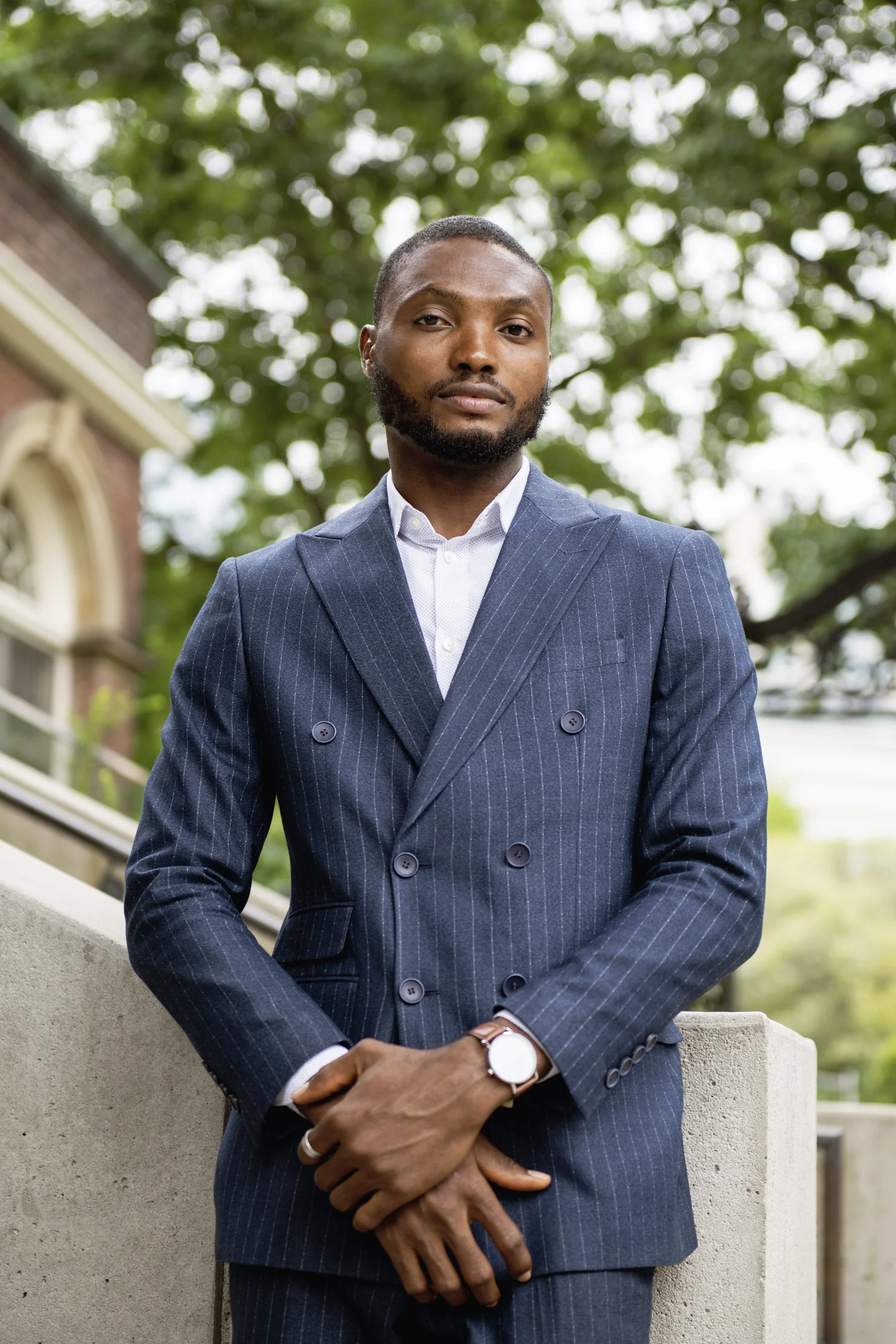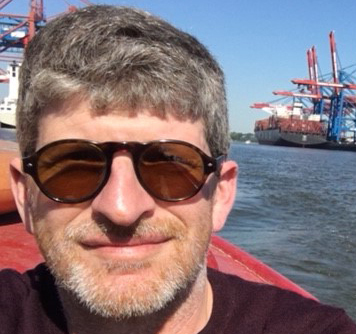Startups Could Help Solve Some of Africa’s Biggest Health Challenges
African entrepreneurs are working with U of T to build their businesses and – they hope – save lives
Program: African Impact Challenge
Launched: 2016
Mission: To enable African innovators to use technology to build businesses that will tackle the continent’s biggest challenges
Mathew Okwoli, a software engineer, has more than a passing familiarity with the shortcomings of Nigeria’s sprawling blood supply system. A few years ago, an aunt of his died during surgery because the hospital where she was being treated didn’t have enough blood. In the aftermath of this family tragedy, Okwoli began to investigate why it occurred. “We discovered that in various hospitals, they don’t have the right facilities for blood storage, or can’t connect to blood banks around them,” he says.
These revelations seeded an idea: could he build a software platform that would give users – hospitals and physicians – access to the locations of the closest blood banks with matching supplies?
The result is Betalife Health, which Okwoli, who is chief technology officer, co-founded with a colleague. Its aim is to create a subscription-based software platform, also accessible via an app, that not only gives health-care providers timely information about blood supplies but will eventually predict demand using AI that draws on health data, such as disease prevalence.
The company also plans to offer services that would enable users to save for future health expenses and book appointments to donate blood. In a nation of 230 million people with very low levels of donation – the annual need is two million pints and only 500,000 are donated – Betalife’s solution aspires to be a lifesaver. “Access to blood is very, very low, and demand is very high,” Okwoli says.
Betalife was one of nine African startups invited to a pitch session at the Jackman Law Building on the St. George campus this past June. The participants belonged to the third cohort of entrepreneurs enrolled in the university’s African Impact Challenge, a business incubator at U of T Scarborough. Each startup was given three minutes to make their business case to an audience of potential investors and strategic partners.
The incubator is, in turn, part of U of T’s Africa Health Collaborative – a project funded by the Mastercard Foundation that includes a three-month residency at U of T. During this period, Okwoli and his peers worked with U of T professors who specialize in entrepreneurship. They attended local tech conferences and made connections within the Toronto area’s dynamic startup scene. “These visits have provided me with insights into industry best practices and innovations,” says Okwoli.
Osas Obano, the program manager for African Entrepreneurship and Partnerships at U of T Scarborough, says the African Impact Challenge aims to empower people in low-income countries to develop their own solutions to the challenges they face. This is more effective and sustainable, he notes, than providing foreign aid. “Instead of donating medical supplies, we support health-care startups. Each year, we go to African communities and look for innovators who are building good solutions,” he says. “We want to know how their innovation is helping health care become more accessible and more affordable. We also want them to think about how to expand their work beyond the African continent to other parts of the world.”
“Our contributions to this collaborative are in the service of African development, for Africans by Africans,” says Joseph Wong, a professor at the Munk School of Global Affairs and Public Policy and U of T’s vice-president, international. The benefits, he adds, flow in both directions, with U of T attracting students, graduates and African research collaborations via the connections forged through this program. “This really exposes us to these new opportunities.”
Last winter, Betalife’s platform, which the company is developing through partnership with African health ministries and other agencies, won an AI-based startup award in Algeria. The firm has raised $180,000 in investments and grants and has been looking at expanding across Africa as well as India, which faces similar issues.
Another presenter from the June pitch session, Mahlodi Letsie, laid out the ideas behind a mental health and wellness platform called Bare Mind. The technology embedded in Bare Mind’s system asks users to provide personal information online or through an app, and then offers programs in areas such as stress management, anxiety, mindfulness and emotional resilience.
“What we’re focusing on,” she explains, “is how to create a holistic platform that houses both mental health practitioners such as psychologists, psychiatrists and social workers, but also helps people with nutrition, fitness and sleep. We’re creating a wellness tracker powered by AI to essentially gamify the experience by giving people access to rewards as they set and surpass their goals.”
In many African languages we don’t have sufficient vocabulary to articulate mental distress.”
As with Okwoli, a personal experience inspired Letsie to establish her company. During her undergraduate degree at the University of Cape Town in South Africa, she battled with anxiety and imposter syndrome, and then saw a family member stricken with more debilitating mental health problems that cost this relative her job. She also lost her own job in 2020 due to the pandemic, adding to her own stress.
Stigma around mental illness is a big problem in South Africa (as it is in many countries). And Letsie says there are few culturally appropriate online resources for South Africans dealing with mental health struggles. “In many African languages, we don’t have sufficient vocabulary to articulate mental distress,” she says.
In 2021, Letsie put a marketing career on hold to pursue her startup idea. She attended an executive program run by the Harvard Business School and decided to reach out to one of the professors for advice. He encouraged her to pitch people online. “During COVID, you couldn’t go meet people in person,” she says. “So, it was just me using the internet in my childhood bedroom, saying I’m an entrepreneur, but kind of faking it because I had no idea what I was doing.”
One of those cold calls was to a global AI company that builds natural language processing software. She eventually connected with a software engineer who specializes in translation for African languages and subsequently signed on to help develop Bare Mind’s platform.

Through her relentless networking and participation in other incubator programs, Letsie was able to raise some money, cobble together a small team of part-time coders who shared her vision, and earlier this year land a contract to create wellness and mental health content for the employees of Adcorp, a large, publicly listed South African company. “If it sticks, it sticks,” she thought at the time. It stuck.
The nine firms that presented at the June session were all looking for different kinds of assistance, beyond what goes with being selected to participate in the African Impact Challenge (the ventures receive grants ranging from $5,000 to $25,000). Some were seeking conventional financing, while others were pursuing grants or, in the case of Letsie, strategic partnerships.
One investor in the audience, James Fraser, was looking for potential candidates with a powerful idea, a sustainable business model and an effective team. Fraser is the president and CEO of Madiro.org, a health-oriented investing fund established in 2021 with $10 million in seed funding. (Madiro is an “impact investor,” meaning the fund works with companies that produce social or environmental benefits). Madiro has invested in nine startups and seven social enterprises – all in Africa’s rapidly expanding health-technology space. Fraser says U of T’s Africa Health Collaborative and the African Impact Challenge “will be a significant and important pipeline of innovation for us.”
Joseph Wong says the Challenge program is rapidly gaining traction among African startups, and now attracts hundreds of applicants every year – many more, in fact, than the university can currently accommodate. He points out that the graduates of the first two cohorts have built up their own network, whose tendrils extend to the investors drawn to pitch sessions like the one held in June, to U of T’s academics, and to entrepreneurship hubs in startup-friendly jurisdictions such as Rwanda, Ghana and South Africa. The goal, however, is to centre these entrepreneurship networks in Africa, in partnership with African institutions, not at U of T.
As Fraser points out, the startups going through the program will be well positioned to capitalize on Africa’s young population. “It’s the future in many ways,” he says. Yet entrepreneurs such as Okwoli and Letsie aren’t only focused on Africa and its burgeoning markets. Indeed, as both are eager to point out, the problems their respective startups are tackling are hardly unique to Africa. “I want to find ways to position Bare Mind as a global business, given that mental health is a global phenomenon,” says Letsie. Adds Okwoli: “Our mission is to create a global solution that ensures hospitals and patients have timely access to blood.”
On a personal level, Letsie says she found that plugging into a community of fellow entrepreneurs at U of T was transformative. “Being able to tap into a vibrant community of brilliant founders who are dedicated to building solutions for the benefit of Africa and the world at large has been nothing short of inspirational.”







No Responses to “ Startups Could Help Solve Some of Africa’s Biggest Health Challenges ”
I found this presentation informative and inspirational. As a graduate of the University of Toronto and a person of African descent, I welcome the collaboration and support.
As an undergraduate student, I find this mission phenomenal and nothing short of captivating. I wish for such vision to guide other Canadian universities or post-secondary institutions.